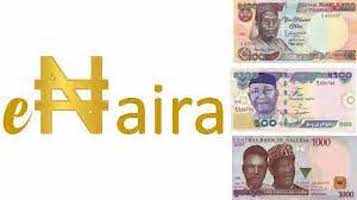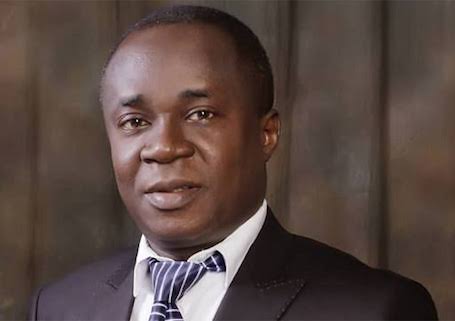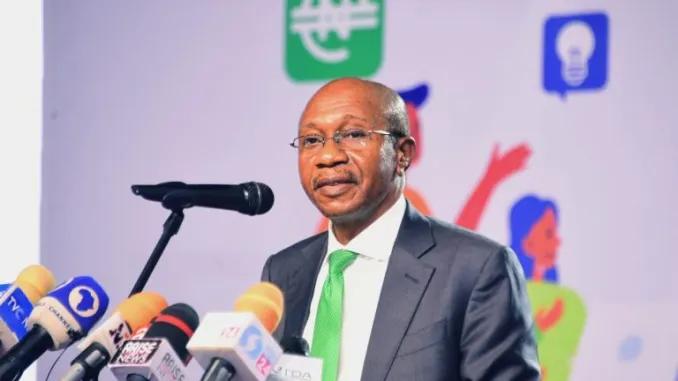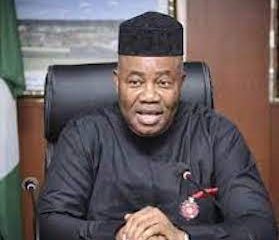Business Analysis
The Hope and Gloom of eNaira, Nigeria’s New Digital Currency

By Nick Agule
On Friday, 1st October 2021, Nigeria will launch a new digital currency tagged the eNaira. The money we hold is comprised of two forms – physical (bank notes and coins) and digital (money stored or exchanged in our electronic bank accounts).
With increasing internet penetration, Nigerians have taken to the use of digital money by increasingly effecting transactions online using bank apps or websites or other digital platforms.
One can therefore argue that the Naira is already in existence in electronic form.It is against this backdrop that the introduction of eNaira by the Central Bank of Nigeria (CBN) which has been declared to be legal tender, making it unlawful not to accept it as a means of payment becomes curious and debatable.
What is the E-Naira?
On its recently launched website (www.enaira.com), the eNaira is described as a Central Bank of Nigeria-issued digital currency that provides a unique form of money denominated in Naira.
eNaira is said to serve as both a medium of exchange and a store of value, offering better payment prospects in retail transactions when compared to cash payments.
The website further lists the benefits of the eNaira to foster economic growth; provide a secure, faster and cheaper diaspora remittance option; traceability which limits its use for illicit and fraudulent purposes; enable effective, equitable, and faster distribution of cash assistance to households and communities in the government’s social welfare programmes; accelerate financial inclusion; increase local and international trade; stronger security and aid revenue collection by reducing cash handling costs.
To use eNaira you must download the eNaira wallet (from app stores) which is a digital storage that holds the eNaira. To make payment or receive money in eNaira requires access to the eNaira account. Users can also dial a USSD short code and follow the required steps to perform transactions.
The Differences Between the Digital Naira and eNaira
As earlier noted, the Naira is already digital which comprises the money we hold in our online bank accounts. So, what is the difference between the current digital Naira and the eNaira? Based on data collated from information releases by the CBN, the main differences can be summarised as follows:The current digital Naira can be withdrawn in cash, therefore with a debit card, we can withdraw from an ATM the money in our online bank accounts or through other means like cheques, cash withdrawal forms etc. The eNaira however will never be withdrawn in cash as it will only be received digitally and spent digitally.
- The current digital Naira in our online bank accounts constitute direct liabilities on the balance sheets of the banks and other financial institutions (it is the banks who owe the customers for monies they deposited with them). The eNaira however is a direct liability on the Central Bank of Nigeria.
- The technology used for the digital Naira is as chosen by the banks and other financial institutions to offer banking services to their customers. For the eNaira the CBN has chosen to hold and manage the eNaira wallets on a distributed ledger (blockchain technology).
- Currently when we transfer digital Naira held in our online bank accounts, the bank charge transaction fees. For the eNaira, the CBN says all transactions including payments and inter eNaira wallet transfers will be free of any charges.
- Deposits made in interest-bearing digital accounts currently attract interest payments from the banks. For the eNaira, the CBN says no interest whatsoever will be paid on balances in eNaira wallets!
- There are intermediaries for the typical online bank transactions for example to transfer money from one customer to another involves going through a bank to effect the transaction. For example, if I hold an account with bank A and I want to transfer money to another person with an account with bank A or bank B, I first transfer the money from bank A to the receiving bank who then credits the recipient’s account (payer – bank – recipient). Whereas for eNaira transactions, there are no intermediaries as you simply transfer money from one eNaira wallet directly to another eNaira wallet with the bank (intermediary) eliminated from the transaction flow!
- Money can be transferred from digital bank accounts currently held with banks to eNaira wallets. But no money can be transferred from eNaira wallets to a digital bank account! So once money is converted to eNaira, it will be in eNaira and can never be reconverted to the digital Naira that be withdrawn in cash!
Concerns about the E-Naira
There are grave anxieties and apprehensions with the introduction of the eNaira including some unanswered questions as follows:There is fear that the eNaira will provide the CBN a loophole to engage in unchecked PRINTING of money. Printing money as used here does not refer to printing of cash (bank notes and coins) but rather it is a situation where the CBN increases money supply to the economy electronically which is also called Quantitative Easing.
Thus, if the government wants to pay salaries, social welfare interventions, contractors etc, the CBN will simply credit the eNaira wallets of the beneficiaries thus increasing money supply.
Government will therefore be spending money it did not earn or did not have because payments will not be made from balances held by the government with banks but by simply the CBN will change electronically the balance in the eNaira wallets of the recipients from zero to any amount the CBN wants!
The danger with printing money is that it causes negative impact on the economy including rising inflation because money supply is increased without commensurate increase in productive activities.
- The CBN explains that once users create their eNaira wallets, they will be able to transfer money from their existing bank accounts to fund their wallets. It is not clear if the monies in the wallets will still be with the banks or transferred to the CBN but given that the balances in the wallets are said to become the direct liabilities of the CBN, it means the monies are likely no longer going to be with the banks. The implication is that there will be technically a run on the banks as more and more users create eNaira wallets and move their funds from the banks to their wallets! This will not only impact negatively on the banks’ ability to support the economy by reducing their capacity to grant loans but also impact on their profitability with attendant consequences on the stock market. It is now looking like the CBN is now competing for deposits with the commercial banks!
- There will be negative consequences on savers who are currently paid interests on their savings by the banks but once they transfer their money to the eNaira wallet, the CBN says they will not pay a kobo in interest on any balances held in the wallets.
- The banks have so far managed their cybersecurity watertight to keep away largescale data and systems breaches. The CBN says the eNaira system uses a two-factor authentication system in addition to cryptographic encryption to ensure the safety of customers’ wallets and the eNaira holding. It is hoped that this commitment to ensure impregnable security is maintained by the CBN with utmost assurance.
- It is interesting to note that a nation that truncated the electronic transmission of election results on account of lack of internet penetration now launches e-Naira that runs on the internet and mandates it for use by all. It is left to be seen how an akara and pap seller in a village setting without a smart phone will accept the eNaira which as a legal tender cannot be rejected when tendered in payment for goods and services.
- An example of how eNaira will facilitate international trade is stated on the eNaira website with the testimony of a business owner as follows:
“Even as I had just made purchase for goods in the UK, the reality of eNaira would be that I simply send and the Pounds Sterling equivalent pops up at his UK office, and they process the payment immediately…”
Currently account holders with banks in Nigeria are restricted in the amount of foreign transactions they can conduct on their Naira-denominated bank accounts, for example one cannot spend more than $100 on a Naira debit card on a foreign currency-denominated transaction.
It is therefore not clear whether the CBN now wants to lift the ceiling such that regardless of the amount of transaction, any eNaira wallet holder can simply send any amount of Naira and it will be translated into a foreign currency?
If so, the question will be that where will the CBN get all the foreign currencies to fund such transactions.
Also, from the example above, will the UK supplier (office) also have an eNaira wallet to receive the pounds? because the CBN says monies in eNaira wallets cannot be transferred to bank accounts.
There are many unanswered questions with the international trade dimension of the eNaira.
With the widespread acceptance and use of digital Naira, it is not clear the overwhelming benefits that has made the CBN to rush the introduction of the eNaira. The grave concerns expressed above also need to be addressed by the CBN if Nigerians and the business community operating in Nigeria are to gain confidence in the eNaira for it to have wide acceptability.
Agule writes from the UK and can be reached on Twitter: @NickAgule; Email: nick.agule@yahoo.co.uk; WhatsApp: +447495164578
Business Analysis
The New forex regime and 2024 Budget Proposals

By Uche Uwaleke
Overall, the 2024 budget proposals hold a lot of promise for the economy if well implemented.
A major snag, however, stems from the likely distortionary impact of the new Forex regime.
A naira float in the face of weak supply and strong demand with its attendant forex market volatility introduces uncertainty in budget implementation.
This is why I consider the N750 to the dollar rate used for the 2024 budget as a tall order.
It’s most likely the exchange rate will be the major cause of wide budget variances in the 2024 budget on account of NAFEM operations.
This is particularly so in respect of the dollar-denominated component of the budget much of which can be found in the over N3 trillion proposed defence spending as well as in recurrent debt expenditure.
A volatile and high exchange rate will increase the cost of servicing external debt and further widen the budget deficit.
In my view, a well implemented and corrupt-free dual (not multiple) exchange rate regime (one official including for debt service and another tier for other transactions) helps to bring certainty in government procurements and short term planning in general.
A related issue has to do with the mode of financing the over N9 trillion deficit and its likely impact on cost of capital for firms and the stock market.
Unlike in previous budgets where the amount voted for new borrowings were split fairly equally between domestic and foreign sources, this time around domestic borrowing is taking up a huge chunk at about 78% (N6.1 trillion out N7.8 trillion provisioned for new borrowings)
This can have the effect of crowding out the private sector, hiking interest rates, increasing cost of funds and depressing the equities market as investors migrate to fixed income securities. The outcome will be a further weakening of the productive sector.
In this regard, the government is advised to explore more opportunities for concessional project-tied loans from multilateral and bilateral sources. This will help to boost forex reserves and stabilize the exchange rate.
With respect to borrowing domestically, it’s important that emphasis should be placed on the use of the right instruments such as infrastructure bonds as opposed to FGN bonds that are inflationary prone.
Uwaleke is Nigeria’s first Capital Market Professor
Business Analysis
CBN’s Monetary Policy Committee Meeting and the Frenzy?

By Ademola Oyetunji
The atmosphere in the Nigeria’s financial sector is in a state of frenzy. Stakeholders are befuddled on why the apex bank’s monetary policy committee have not met. This is because the CBN had twice postponed the meeting under the leadership of its new Governor.
The first postponement scheduled to hold shortly after the appointment of Mr.
Cardoso and his four deputy governors, was obviously put on hold to enable them settle down. The reason could also be that the new management team needs time to study and digest President Tinubu’s 8-point agenda and current trends in the financial system to align them with his vision.Mr. Cardoso at the NASS screening had promised to ensure the independence of CBN. He also pledged to ensure that the CBN under his watch will play its role as a catalyst for growth, and adviser to the government. He said “his-CBN” will shy away from interloping responsibilities.
It is also a common knowledge that President Tinubu had ordered a clean house of the Bank believed to have veered of its mandate under the immediate past governor.
It is also a public knowledge and concern that the Naira has been under attack by speculators and rent seekers, a chronic headache for the Bank’s new helmsmen. Forex illiquidity has also become malignant. Thus, convening the MPC meetings amidst these challenges may not be an immediate priority, rather they have been unobtrusively addressing and stabilizing the financial sector. The gains of these efforts are visible, though the parallel market is still chaotic.
The postponement of what was supposed to be its last meeting for the year further heightens the palpable fear and uncertainties of the consequences of the MPC not meeting. Stakeholders’ fear cannot be dismissed as Nigerians battle economic hardship, rising food inflation and unbridled Naira depreciation.
However, the CBN Act 2007 section 12 saddles the Committee to ensure price stability and support economic policy of the federal government. The Committee consists of the Governor as the chairman, the four deputy governors, two members of Board of Directors, two members appointed by the Governor, and two members appointed by the President to formulate monetary and credit policy.
It is the highest policy making organ of the Bank responsible for reviewing economic and financial conditions in the economy. It also determines the appropriateness of policy applications in short to medium term, and regularly reviews Bank’s monetary policy framework, and adopt changes when necessary.
The Act mandates the Committee to communicate monetary and financial policy decisions effectively to the public and must ensure the credibility of the model of transmission mechanism of monetary policy. It is to meet bi-monthly, except otherwise (as it is the case presently) or on emergency.
Until the appointment of the present CBN Governor, the Committee had met four times under the last dispensation. It is also a public knowledge that boards of federal parastatals and agencies were dissolved by the President with many yet to be reconstituted. The CBN board is one of those dissolved and yet to be reconstituted, neither is it a public knowledge that the President has nominated his two candidates.
Hence, the Bank presently does not have the required number to form a quorum, nor the Governor and his deputies have the constitutional mandate to overtly make certain monetary policy decisions without the approval of the Board.
The concern by the public is normal, particularly the way economic saboteurs have been attacking the Naira and manipulating the parallel forex exchange market. The concern is also noted considering the latest inflationary figure, 27.33%, released by the National Bureau of Statistics (NBS).
But to allay the fears of the public, the Bank’s spokesman, Dr. Isa Abdulmumin had on the eve of the scheduled September MPC meeting issued a press statement to announce its postponement. He regretted any inconvenience the change in date may have caused the Bank’s publics.
The hullabaloo over non-holding of the meetings may have been misplaced but expected. And with Nigeria’s current economic reality, it behooves the economic managers to be strategic in meeting economic saboteurs at their wits ends.
Notable economists and financial technocrats have entertained worries over continuous postponement of the organ’s meeting. They believed it may further heighten economic uncertainties. Mr. Boluwafemi Agboladun, a chartered accountant, expressed fears that the silence from the Bank amidst economic turbulence is unsettling as no concrete reason was given for not holding the meetings.
He was however quick to add that the strategy adopted so far by the new management of the Bank is yielding positive dividend. There is stability in the forex market, and Naira exchange rate is no longer volatile. The strategic management adopted by the CBN so far, he noted, is commendable, making currency peddler unsure of what next is coming out from the Bank.
Agboladun also felt that the new CBN Governor may have decided to start the new year with his own monetary policy calendar after he would have gotten a clear heads-on of the fiscal direction to align it with his monetary policy philosophy. He stressed that, it is better for the CBN and the government to have a clear distinction in roles, unlike the muddled and overlapped responsibilities witnessed in the last administration.
Feranmi Deepak, a public commentator, was not surprised that the meeting, though statutory, has suffered two postponements. He was only worried that the outcome of the meetings would have avail the public of the monetary policy direction of Mr. Cardoso, as it would have road mapped investment decisions by local and foreign investors.
The CBN, he observed, may also be taking its time coming out with its agenda. This, he noted, may be due to the ongoing economic diplomacy drive of the President who has been unrelenting in his travels, marketing Nigeria. Therefore, the CBN, he said, “may be collating all he has been saying to the investing community to develop its monetary policy roadmap as government banker and advisor”.
He was optimistic that the MPC meeting would assume its normal mode next year, when probably the President in his wisdom would have reconstituted the bank’s board to allow for normalcy in its calendar and restore stability in the financial sector.
*Ademola Oyetunji writes fro
Business Analysis
Tweaking CBN Act, NASS Must Tread with Caution

By Chisom Adindu
The ongoing effort by National Assembly to tinker with the Central Bank of Nigeria’s Act, 2007, has been generating heated debate within the polity. The concern has been the rationality of the exercise. This effort is spearheaded by two distinguished Senators, Senators Steve Karimi and Darlington Nwokocha.
The bills are – ‘A Bill to Amend the Central Bank of Nigeria Act 2007, and Matters Connected Therein’, and An Act to Amend the Central Bank (establishment) Act 2007 to Make the Central Bank More Transparent and Accountable in its Operations and to Ensure Enhancement of its functions and for Connected Matters’.
The crux of the two amendments already consolidated by the Senate is the ban on the CBN governor and his deputies from partisan politics, reconstitution of the CBN Board; subjection of CBN staff renumeration to the Salaries and Wages Commission; and ceding the position of the Board Chairman to a person outside the CBN. Also proposed prohibition of use of foreign currency in local transactions. Until this proposal, the Governor doubles as the Board Chairman.
The preoccupation of the sponsors of the bills is to enhance transparency and efficiency of the Central Bank of Nigeria, and to strip its governor of certain powers. The Senate Committee on Banking and Finance is saddled with the responsibility of reviewing and working on these bills for the Senate to take a position.
Whatever is the expectation of the sponsors, it is important that the National Assembly does not in a spasm of emotion erode the independence of the Bank. CBN Act 2007 had settled this.
It was a common knowledge that the immediate past CBN governor’s hiatus and unprofessional conduct by engaging in partisan politics may have warranted this quest. His action was an infraction, and antithetical to his oath of office. It was also against the norms of central banking ethics. Anger against a rare singular infraction should not be used as an excuse to cripple a vital organ of government as the CBN. It amounts to throwing the baby away with the bath water.
An International Monetary Fund (IMF) working paper titled: The Role of Board Oversight in Central Bank Governance: The Legal Design Issues describe the Central Banks as a public law institution established to fulfill essentially sovereign functions delegated to them by the State. It admitted that certain central bank laws explicitly prohibit certain operations.
Continuing, the paper said, for a central bank to be effective, it must enjoy a high level of autonomy vis-à-vis both political institutions and private economic interest. This autonomy it enumerated as: institutional, functional, personal, and financial. Institutionally it said the central bank should not be influenced by the State or private third parties in its decision-making in the context of the performance of its functions, e.g., through ministerial instructions.
Functional points to its capability to implement its functions without direct governmental interference, and Personal ensures that key decisions makers of the central bank (Governor and members of the Executive Board, Monetary Policy Committee and Oversight Boards) are autonomous from political and private economic interest.
The Financial entails the capability of the bank to pursue its mandate by way of the financial means required to do so (the emphasis is mine).
Banning the CBN governor and his deputies from partisan politics is a good proposal, and well approved. But to appoint/impose an outsider as the chairman of the board other that its governor is incongruous with global central banking practice.
Typical of our clime, as being proposed, will not augur well for a critical institution as the CBN. The infraction of its former governor – highly condemned, is not an excuse to deal a fatal blow on the Bank. It amounts to killing a fly with a sledgehammer.
Subjecting its staff salaries to an external body violates the financial independence of the Bank. Infractions committed by its former governor has nothing to do with staff welfare. There are other organs of government earning far higher than the CBN staff, yet the legislators turned the blind eye.
Why are all eyes on the CBN? Are the Nigeria National Petroleum Plc staff salaries a subject of scrutiny by the National Salaries and Wages Commission? The Debt Management Office (DMO), Nigeria Deposit Insurance Corporation (NDIC), and many others. It is public knowledge that the staff of some of these agencies earn fantastically higher, (excluding other perks) than the CBN staff.
The Central Bank of Nigeria like its peers is the heart of the monetary system of the country. Nigeria’s economy is influenced heavily by the actions it takes, thus, any spasm of irrational decisions to alter or whittle what international investors and global partners would see as an erosion of the Bank’s independence, will further hurt the already fragile economy.
It was the Central Bank of Nigeria during the COVID-19 pandemic that ensured the stability of the economy while other organs of government were at a loss on what to do. The CBN should not be politicized. What happened under Godwin Emefiele was a rash decision that should be treated in isolation.
Amending the Act is not investor friendly, and it should be jettisoned. It will also encumber the effectiveness of monetary policy, and once the institution is seen as an appendage of the political class, there will be loss of faith, and confidence, in the economy. Ultimately, the economy will suffer for it.
Mr. Uche Tochukwu, a financial expert, said tweaking the CBN Act now, just because of what happened under Godwin Emefiele will hurt the economy and the integrity of the CBN. He welcomed the decision of the lawmakers to ban the Governor and his deputies from partisan politics but frowned at appointing an outsider as the Bank’s Board Chairman. He said it is an aberration.
Tochukwu called the attempt to subject the CBN staff salary to Salaries and Wages Commission as meddlesomeness. What about their own opaquely fatty allowances the public has decried? Doing that, they advised, will kill the morale of the staff. Are we even sure the staff are earning fantastically, he asked?
The legislators should get serious with other national pressing issues in the economy rather than tampering with the CBN Act. Dr. Babatunde Adisa, an economist expressed this. He said, globally, independence of central banks is high advocacy, why is our own legislators thinking of reversing the CBN gear of progress. He said those advocating for the weakening of the CBN governor’s power or administration of the institution are not in tune with reality.
Thus, the National Assembly should be guided as posterity will not forgive them if they are resolute on this unprofitable voyage.
Chisom Adindu writes from Umuahia, Abia State.

























